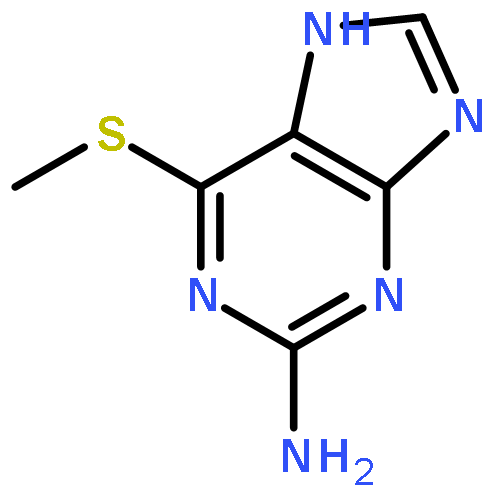Co-reporter: Hongxia Wang and Yinsheng Wang
pp: 5797
Publication Date(Web):June 15, 2010
DOI: 10.1021/ac1008628
Thiopurines, including mercaptopurine (MP), 6-thioguanine (SG) and azathioprine, are widely used for the treatment of many human diseases including acute lymphoblastic leukemia (ALL). To exert their cytotoxic effect, these prodrugs need to be metabolically activated to SG nucleotides and incorporated into nucleic acids. SG in DNA can be methylated spontaneously to S6-methylthioguanine (S6mG) in the presence of S-adenosyl-l-methionine. It was proposed that S6mG, owing to its high miscoding potential (pairing preferentially with thymine), may induce cell death by triggering the postreplicative mismatch repair pathway. Understanding the implications of this pathway in the cytotoxic effect of thiopurine drugs necessitates an accurate measurement of the level of S6-methylthio-2′-deoxyguanosine (S6mdG) in DNA of cells treated with thiopurine drugs. Here we developed a sensitive HPLC coupled with tandem mass spectrometry (LC-MS/MS) method and measured the level of 6-thio-2′-deoxyguanosine (SdG) and S6mdG in genomic DNA of four human leukemia cell lines and one human colorectal carcinoma cell line. Our results revealed that, upon treatment with 3 μM SG for 24 h, approximately 10, 7.4, 7, and 3% of guanine was replaced with SG in Jurkat T, HL-60, CCRF-CEM and K-562 cells, respectively. However, only less than 0.02% of SdG was converted to S6mdG in the above cell lines. HCT-116 cells had the lowest level (0.2%) of guanine being replaced with SG in DNA, and approximately 5 out of 104 SG was converted to its methylated counterpart. This is the first report of the simultaneous and accurate quantification of SdG and S6mdG in genomic DNA of cultured human cells treated with SG. In addition, our results suggested that DNA SG might trigger mismatch repair (MMR) pathway without being converted to S6mG.
